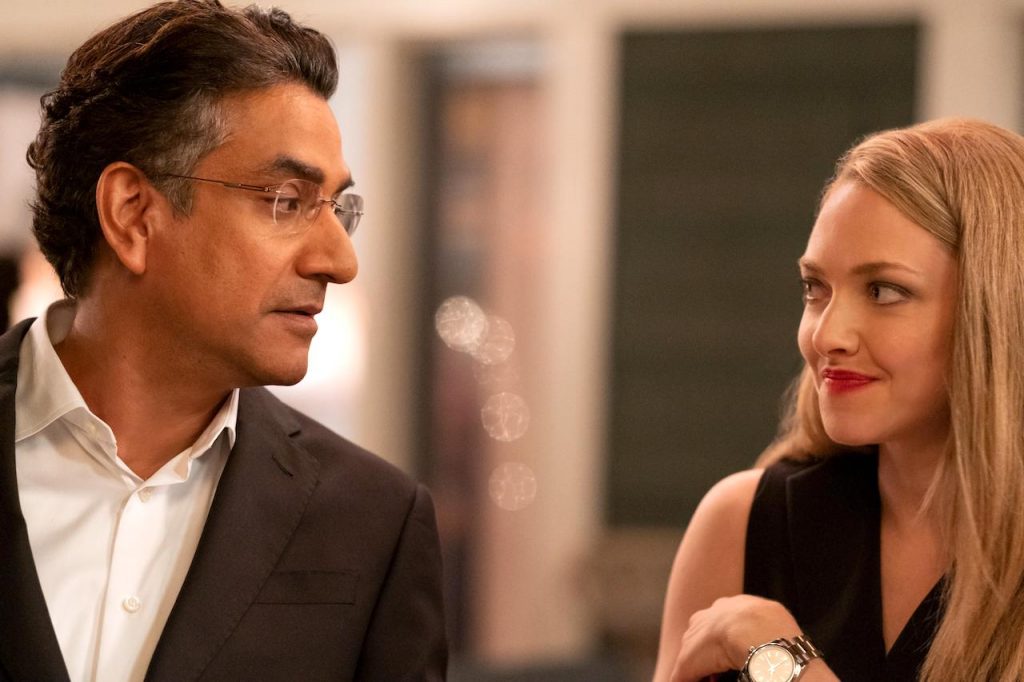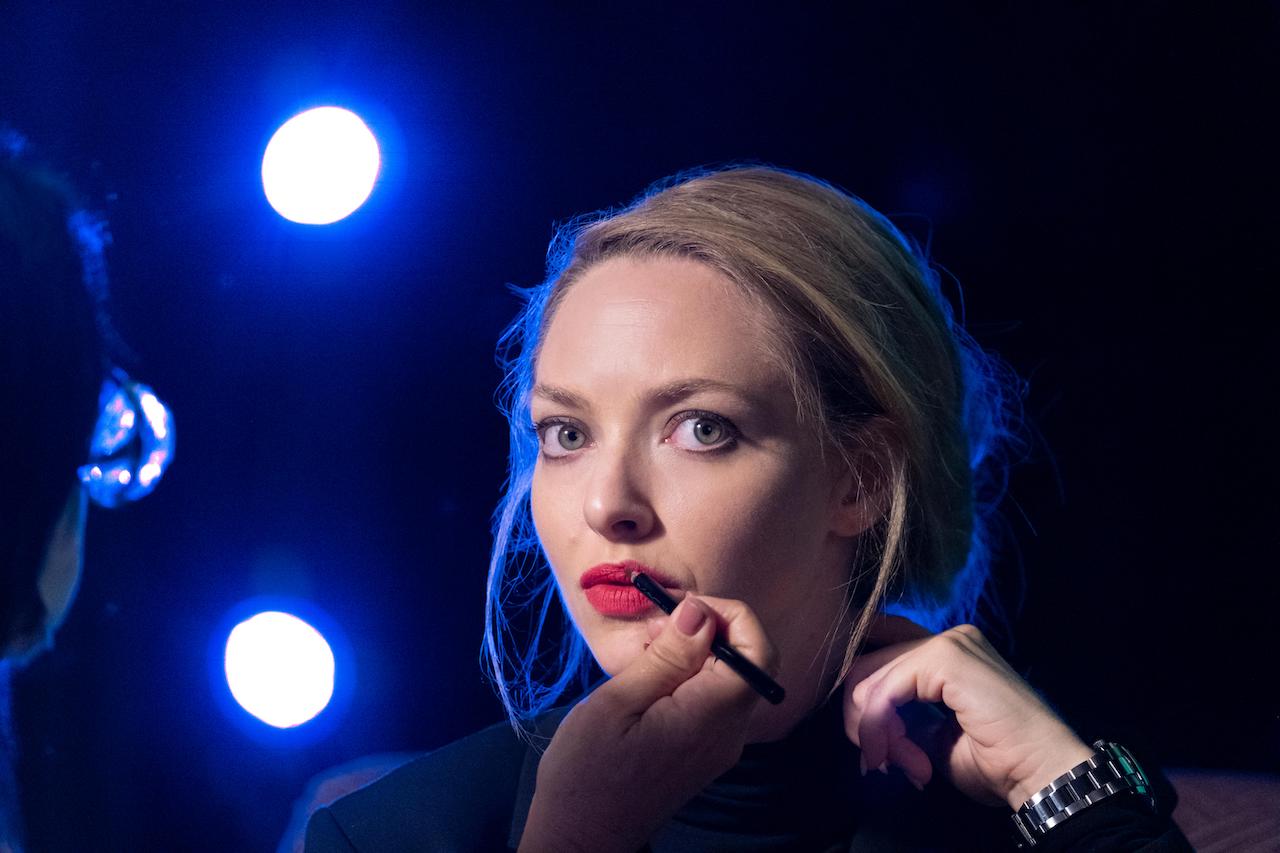There seems to be something about stories of billionaire tech titans falling from dizzying heights on our screens of late. The Dropout chronicles the path of Elizabeth Holmes (Amanda Seyfried) who dropped out of Stanford to start Theranos, her own healthcare company that purported to diagnose countless medical conditions using only a few drops of blood.
Is this the stuff of science-fiction or medical fantasy? Turns out, it was the stuff of fraud. The story takes place over twelve years and follows the breathtaking rise and fall of its founder Elizabeth Holmes. The show’s creator, Elizabeth Meriwether (New Girl) shows Holmes’ journey from the world’s youngest billionaire to prison cell. The transition from network television comedy to drama allowed the writer to work different creative muscles.
“For me, it was about Liz Holmes’ character and who she is as a person,” said Meriwether. She drew on parallels between her own life and that of Liz Holmes. “We were both young women of a similar age experiencing success early in our careers. I created New Girl when I was twenty-nine years old without any previous experience in a TV writers’ room.”
Being in a position of power without the requisite experience was something that resonated with Meriwether. Holmes’ character was a mystery to Meriwether. “How did she go from being an ambitious, young woman at Stanford to being convicted of fraud?”

Liz Meriwether
The writer realized it was a long, complicated journey and doesn’t believe that Holmes started Theranos with the intention of committing fraud. She was fascinated by how such destructive choices get made and the environment that supports those choices.
“Money and the extensive scientific research and the compromises that are made to secure ongoing funding creates a system that potentially leads to fraud.”
Who Is Elizabeth Holmes?
The Dropout was first told as an ABC podcast of the same name which outlined the Theranos story. “I took a lot from the podcast to create the TV series. We also interviewed people and did our own additional research,” Meriwether continued. “The podcast offered many anecdotes about Holmes’ inner life such as running when she eleven years old and not quitting.”
Meriwether added that there wasn’t much coverage of Elizabeth Holmes and Sunny Balwani’s (Naveen Andrews) relationship because they kept it private. “We really dramatized that area of the show because I didn’t have a lot of information about it.”
The showrunner highlighted the importance of conducting comprehensive research into the events. “It’s equally important to put it aside and craft a story that’s entertaining,” she continued, because the fictional narrative is driven from a place of knowledge.
You’re not just reporting events. You’re telling an emotional story.
Was Liz Holmes a product of her upbringing? Holmes’ great-great-great grandfather Charles (on her mother’s side) founded Fleischmann’s Yeast which disrupted and revolutionized the baking industry by inventing compressed yeast. Although most of Fleischmann’s fortune had been squandered away over the subsequent decades, there was a familial legacy that Liz Holmes was inclined to continue.
“One of her relatives started The New Yorker, another owned an island in Hawaii that many celebrities visited. The idea that you could invent something, become an entrepreneur and make a fortune was engrained in her childhood.” The showrunner claimed that this rags to riches story illuminates the American Dream. “The audience is rooting for her to succeed as much as they’d like to succeed.”
Liz Meriwether didn’t have enough time to explore Liz Holmes’ story in The Dropout, but when she did, it was through Holmes’ relationship with her father Christian Holmes (Michael Gill.) Although the showrunner highlighted the familial expectations on Holmes, “she also put many unrealistic expectations on herself.”
The transition from innovative disruptor to fraudster was subtle and unplanned. The show’s creator can’t identify the exact tipping point for the change. “There’s a shift in the second episode when Holmes presented a fake demonstration to investors.”
“Holmes crosses another line when her Theranos’ product goes live in Walgreens and she’s testing people. That’s a turning point for her character where her company is out of control.”
The mainstream villain has often portrayed Liz Holmes as a “crazy outlier villain.” Meriwether wanted the audience to attach themselves to her. “I didn’t want Holmes to be a joke and people to give her labels. I wanted the audience to understand how such devastating decisions get made,” said Meriwether.

Sunny Balwani (Naveen Andrews) and Elizabeth Holmes (Amanda Seyfried). Photo by Michael Desmond/Hulu)
Part of Holmes’ decisions were driven by her relationship with Sunny. Meriwether wasn’t sure exactly what sustained it despite its toxicity. “They needed each other. In some ways, they were the only two people that truly understood each other fully. At a certain point, there was also fear of breaking up.” Sunny gave Theranos a huge cash injection and later joined the company in a managerial capacity. This further complicated their personal relationship. “There was a mutual ambition to their relationship,” which allowed it to continue, albeit in a toxic manner.
The Dropout is neither a documentary nor a biopic. The dramatization contains elements of drama, comedy, and at times, absurdity. “I wanted those tonal shifts because it mimicked the real Theranos story,” said Meriwether. “I embraced the surprise and absurdity of the bizarre Silicon Valley startup world with its emotional rawness.”
Despite the cautionary tale associated with the way some venture capitalists influence certain startups with unrealistic valuations and jaw-dropping cash injections, Liz Meriwether didn’t want to focus on these elements in The Dropout.
Despite the showrunner’s desire to dramatize the story, she was always cognizant of staying true to the actual events as best she could. She told a story about real people who are still alive and took that responsibility very seriously. “I had to boil the spirit of the story into eight episodes.“
